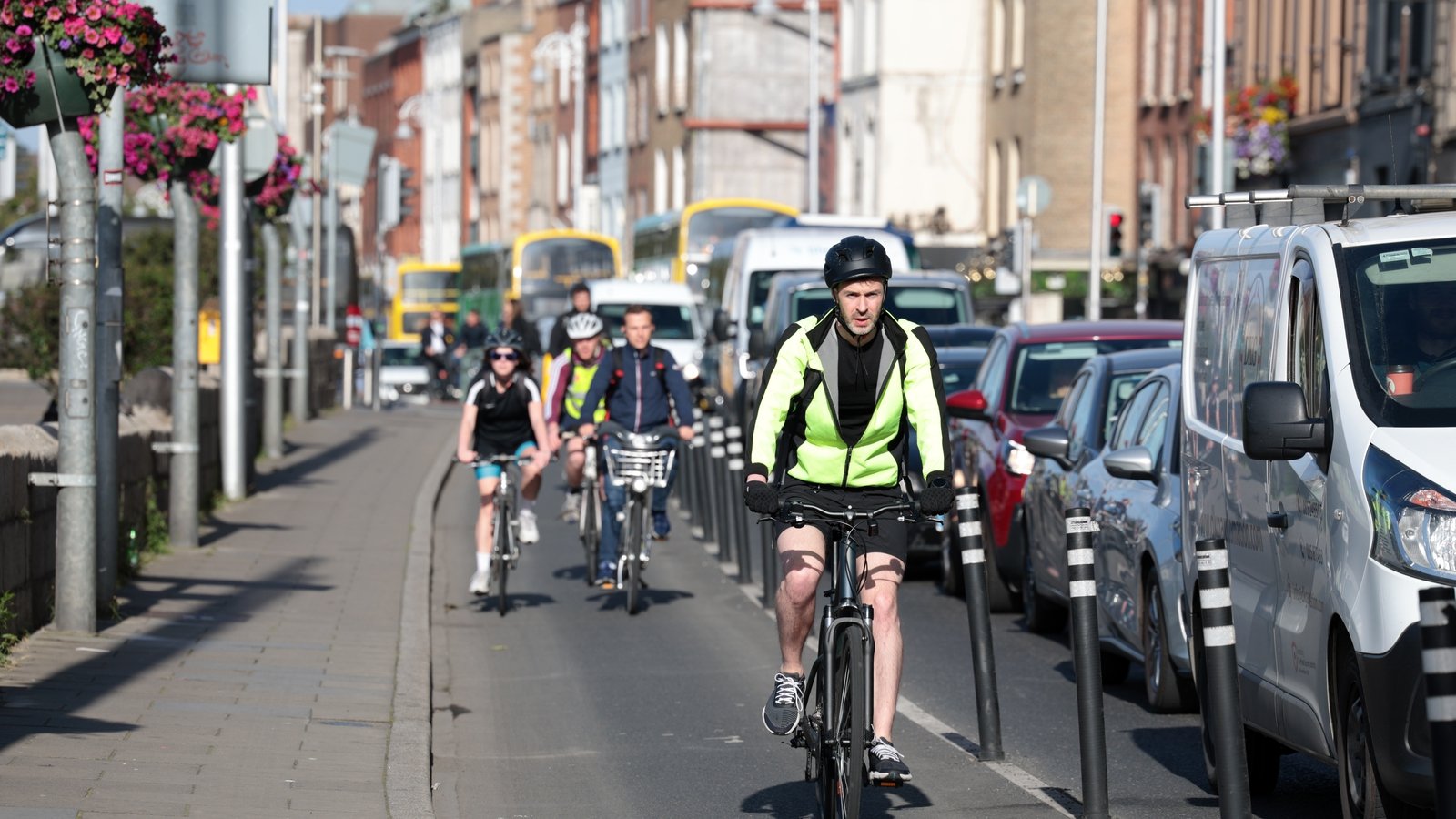Bussiness
Traffic plan needs independent economic review – TD

Dublin City Council should have done its own independent economic impact assessment of its proposed traffic plan, Social Democrats TD Cian O’Callaghan has said.
He added it is a problem to now have one coming from a lobby group.
This comes after a number of business groups have called for the plan, which changes the way cars can travel in Dublin city centre, to be paused.
Speaking on RTÉ’s Today with Claire Byrne, Mr O’Callaghan said international evidence shows that when more space in cities is allocated for pedestrians it is “good for business and retail”.
He added that there has been a 17% increase in footfall since Capel Street was pedestrianised.
He said: “There was controversy years ago over pedestrianising Grafton Street, Henry Street, North Earl Street – no one ever suggests to go back on that. There was controversy around Capel Street, it’s worked really well.
“When do we ever allocate more space for pedestrians? Go ahead, do it, get on with it.”
The changes were due to come into effect next month as part of a plan to reduce congestion and pollution, however the business groups want the plan to be paused until their concerns are considered.
The Dublin City Centre Traders Alliance yesterday submitted its report to Dublin City Council outlining the potential economic impact of the transport plan, which they say will lead to a loss in trade and job losses.
The group, comprised of well-known retailers and service providers including Brown Thomas, Arnotts, Retail Excellence Ireland and Restaurants Association of Ireland estimate that more than €141 million will be lost in retail spending when the plan is fully in effect in 2028.
The Chief Executive of Retail Excellence – which is a member of the alliance – said the report was based on data from the National Transport Authority and Dublin City Council.
Speaking on RTÉ’s Morning Ireland, Jean McCabe said businesses are concerned about their livelihoods and staff.
“We’re fearing that it could result in a drop in retail spend, which would result in job losses, an increase in vacancy within the city, and that just brings in more unsocial behaviour,” she said.
“The city is still recovering from the riots and our request for a pause is on the basis that the city is just too fragile right now for this plan and would not be able to sustain any negative impact.
“What we’re asking for is to be able to sit down with DCC and for the voices of retailers to be considered and their concerns taken on board.”
We need your consent to load this rte-player contentWe use rte-player to manage extra content that can set cookies on your device and collect data about your activity. Please review their details and accept them to load the content.Manage Preferences
Ms McCabe said customers who travel by car into the city represent over a quarter of the spend according to NTA data, while a survey of their own members shows 40% of the spend they see in their stores comes from car customers.
“So I think its fair to say that the car customer is a major contributor to the retail spend in the city,” she added.
“This transport plan looks to reduce those customers by 40%.
“It was left to the business community to do an economic impact assessment. The business community shouldn’t have had to commission an impact assessment report, it should have been done long before now.”
Plan was ‘flagged well in advance’
Brian Caulfield, a Professor of Transportation at Trinity College Dublin, said that while he understands the concerns from the business community, those fears “tend to not pan out” in other cities internationally when similar measures are brought in.
Speaking on the same programme, Prof Caulfield said the transport plan was “flagged well in advance” and any delays could result in it being diluted.
The plan should “definitely not” go back to the drawing board, he added.
“We go back to the drawing board far too often on transport plans in this country… it’s taken us 30 years to deliver 40 kilometres of light rail in this city,” he said.
Prof Caulfield said one thing the council needs to “do a better job on” is addressing the impact the plan would have on those who are unable to take public transport to commute to work.
He said “a huge amount of data” is collected on a daily basis in Dublin and the impacts of the plan will become clear “pretty quickly”.
“We’d need to give it a couple of months to bed in to see where the traffic reorganises itself, but the city council do have a responsibility to make sure that the traffic that’s moving out of the city centre isn’t just causing problems elsewhere,” he said.










